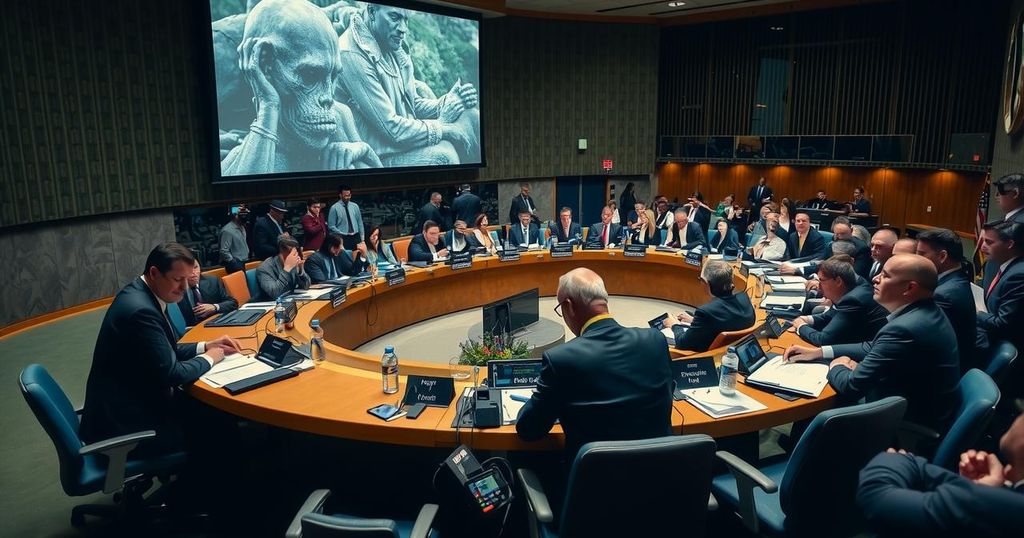Negotiators at UN climate talks in Baku face growing tensions as developing nations reject insufficient financial proposals meant to aid their climate change efforts. Key leaders express frustration over the perceived neglect by wealthy nations and the urgency for a satisfactory deal amidst significant time constraints, risking harmful compromises.
During the ongoing United Nations climate talks in Baku, Azerbaijan, tensions escalated as negotiators from both affluent and developing nations sought to establish a financial agreement to assist vulnerable countries in addressing climate change. A proposed draft that suggested USD 300 billion annual allocation was met with strong opposition from African and small island nations, leading representatives from the Least Developed Countries (LDC) and the Alliance of Small Island States (AOSIS) to withdraw from discussions.
Evans Njewa, chair of the LDC group, expressed dissatisfaction with the current proposal, prompting delegations to unite and reassess their strategies. Even though the last official draft had pledged USD 250 billion annually by 2035—more than double the previous USD 100 billion target—these amounts remain inadequate compared to the annual USD 1.3 trillion experts assert is essential for effective climate adaptation and mitigation.
Frustration mounted as developing nations accused wealthier countries of stalling negotiations in a bid to minimize their financial responsibilities. With the calendar pressing forward, leaders were compelled to depart for other commitments, intensifying the urgency surrounding the discussions, and notes of grievance were raised against perceived neglect by host country representatives.
Despite calls for solidarity among developing nations, including strong statements from leaders like Juan Carlos Monterrey Gomez of Panama, the absence of a unified stance could result in detrimental concessions that fail to meet the pressing climate crisis. With time running out, international climate finance discussions remain in jeopardy, risking the integrity of previous commitments aimed at reducing fossil fuel dependency and supporting climate resilience among the most affected states.
The ongoing climate negotiations at the UN are pivotal for establishing a financial framework aimed at assisting developing countries manage the impacts of climate change. The 2015 Paris Agreement obligates wealthier nations to support their less affluent counterparts financially, which is crucial for helping them adapt to ongoing environmental changes and transition to sustainable energy sources. The current discussions are largely influenced by the longstanding demands from developing states for increased financial support, which reflects the historical patterns of disparity in global climate finance initiatives. These negotiations face additional complexity due to the divergent interests and strategies between rich and poor nations, leading to accusations of manipulation and delaying tactics from the wealthier parties.
In summary, the UN climate talks in Baku face mounting pressure as negotiators strive to finalize a financial agreement to assist developing nations amid an ongoing climate crisis. The significantly inadequate financial proposals and the growing frustration voiced by leaders of vulnerable countries underscore the urgent need for effective resolutions that align with their demands. If negotiations falter, it may jeopardize not only current initiatives but also the commitment to international climate finance, further exacerbating the vulnerabilities of affected nations.
Original Source: www.theweek.in






